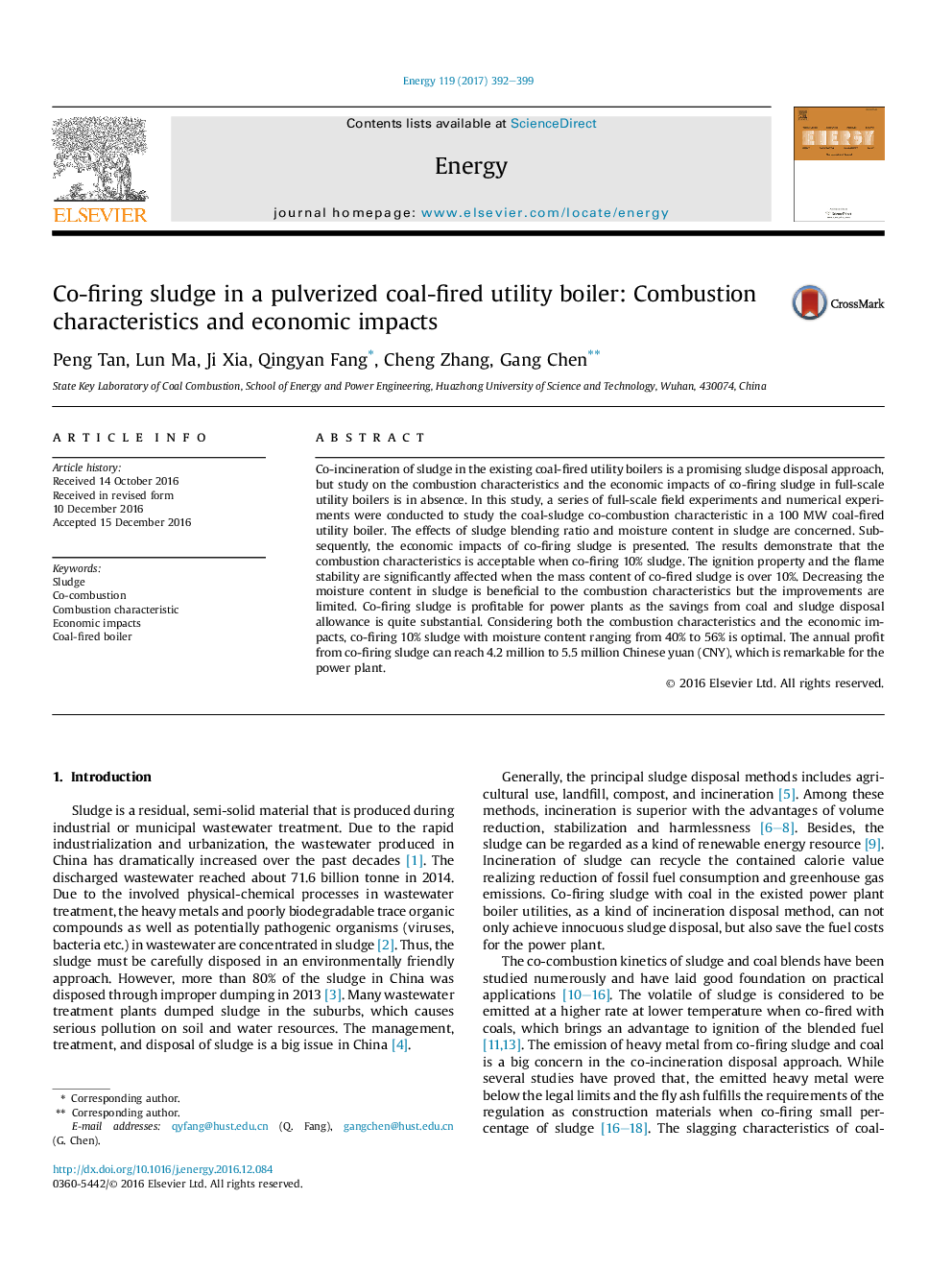| Article ID | Journal | Published Year | Pages | File Type |
|---|---|---|---|---|
| 5476892 | Energy | 2017 | 8 Pages |
Abstract
Co-incineration of sludge in the existing coal-fired utility boilers is a promising sludge disposal approach, but study on the combustion characteristics and the economic impacts of co-firing sludge in full-scale utility boilers is in absence. In this study, a series of full-scale field experiments and numerical experiments were conducted to study the coal-sludge co-combustion characteristic in a 100Â MW coal-fired utility boiler. The effects of sludge blending ratio and moisture content in sludge are concerned. Subsequently, the economic impacts of co-firing sludge is presented. The results demonstrate that the combustion characteristics is acceptable when co-firing 10% sludge. The ignition property and the flame stability are significantly affected when the mass content of co-fired sludge is over 10%. Decreasing the moisture content in sludge is beneficial to the combustion characteristics but the improvements are limited. Co-firing sludge is profitable for power plants as the savings from coal and sludge disposal allowance is quite substantial. Considering both the combustion characteristics and the economic impacts, co-firing 10% sludge with moisture content ranging from 40% to 56% is optimal. The annual profit from co-firing sludge can reach 4.2 million to 5.5 million Chinese yuan (CNY), which is remarkable for the power plant.
Related Topics
Physical Sciences and Engineering
Energy
Energy (General)
Authors
Peng Tan, Lun Ma, Ji Xia, Qingyan Fang, Cheng Zhang, Gang Chen,
